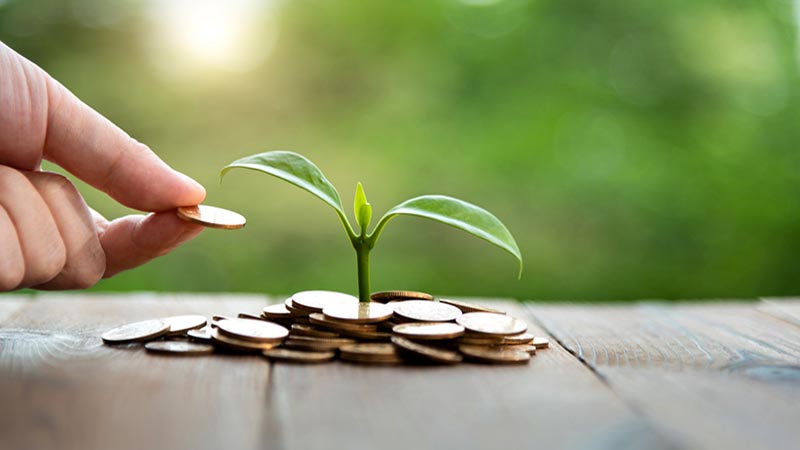By Darius McDermott, managing director of FundCalibre
The case for sustainable investment used to be self-evident. Long-term investors were aligning themselves with companies that were managed for long-term strength, rather than quarterly earnings numbers. These were companies that were using resources sustainably, treating their staff well, had control of their carbon emissions and made full use of the diverse talent available to them.
But the atmosphere has changed since the inauguration of Donald Trump. He has made no secret of his desire to ‘drill baby drill’, has rolled back on diversity, equity and inclusion (DEI) initiatives and ditched the US’s climate commitments. Companies have followed suit, with Amazon, Disney, Google and Meta – among others – getting rid of their diversity programmes. In this environment, investing sustainably looks, well, naïve.
It doesn’t help that responsible strategies have had a difficult run of performance. It has been a tough period for climate-related investments in particular, with higher interest rates and inflation raising the cost of capital spending for renewable energy groups. However, we still see some mileage in this type of investment.
See also: EY: Investors display ‘worrying level of apathy’ to ESG
First, the problems that responsible companies seek to address still exist. On climate change, for example, Peter Michaelis, manager of the Liontrust Sustainable Future Global Growth fund, said: “The urgent need to decarbonise our economy remains as important as ever, and despite some pushback in political circles, the fact that virtually all the technology we need to decarbonise is in place is reassuring. We expect growth in companies which allow us to decarbonise – such as renewable energy and technologies which drive energy efficiency – to deliver strong performance.”
The same could be said for many areas of responsible investment. The world has finite resources and needs to use them better. Companies that act responsibly are likely to manage risks better and companies that make good use of the talent pool available to them are likely to be more productive.
Growth opportunities
Investing responsibly may also highlight significant growth opportunities. The Liontrust fund holds Spotify, for example, as part of its ‘encouraging sustainable leisure theme’. The audio platform has seen paid subscribers rise above 250m, has strong margins, but is also contributing to lower energy consumption and pollution than records and discs, which use energy-intensive, hydrocarbon-derived plastics.
Deirdre Cooper, co-manager on the Ninety One Global Environment fund, said technological innovation continues to reshape the decarbonisation landscape as well. “In China, battery advancements are enabling EV ranges up to 1,000 kilometres, eliminating range anxiety. We are also seeing important innovations in energy efficiency, especially to enable data centres to handle the power demands of artificial intelligence. This is an area where we have been adding exposure in the portfolio through renewables developers and battery manufacturers, as well as firms supplying efficient electrical and cooling equipment, and handling the permitting and planning for new data centre projects.”
See also: 115 funds drop ESG from branding in 2024
Valuations are attractive. Deirdre said: “Recent negativity towards decarbonisation has created opportunities to invest in high-quality companies with structural growth potential that we do not believe is being priced by the market. As a result, valuations in the portfolio remain attractive, and its quality has continued to improve.”
Regulatory tailwinds
In major markets outside the US, sustainability continues to be a priority for governments and policymakers. In the UK, for example, the Sustainability Disclosure Requirements (SDR) continues to improve disclosure and monitoring, working towards its aim of ensuring that companies’ sustainability claims are genuine and verifiable.
As part of this, the new sustainability labels for funds will come into effect on 31 July. The labelling regime aims to address greenwashing and should create a more transparent and predictable environment for fund selectors. While a number of fund groups have chosen to drop sustainability labels in response to the new regime, Schroders, Aberdeen, Columbia Threadneedle Investments, Fidelity International, Ninety One, WHEB Asset Management and Jupiter Asset Management are planning to use the labels for at least some of their funds.
It is a similar picture in Europe. The Corporate Sustainability Reporting Directive, or CSRD, is introducing detailed reporting requirements on company impacts on the environment, human rights and social standards, and sustainability-related risk. This will continue to put pressure on companies not complying with the rules.
See also: IA: Jargon remains a barrier to SDR adoption despite high adviser appetite
Even in the US, the rolling back of climate and sustainability-related initiatives may not be as drastic as expected. Deirdre at Ninety One said a number of Republicans in Congress continue to back the Inflation Reduction Act (IRA), so it will be very difficult to dismantle. “Even if the IRA is partially repealed, this won’t necessarily affect the bottom line of all decarbonisation companies. For example, the largest renewables producer in the US has locked in tax credits for the next four years, insulating it from potential fall-out.”
The group’s biggest concern is that tariffs could ultimately result in higher long-term interest rates, which would be a headwind given the large capital investment required to decarbonise the economy. “On the other hand, deregulation, such as changes to the planning framework, could accelerate investment in renewable infrastructure, as happened during Trump’s first term,” she said.
While it may look like responsible investment is a busted flush in a Trump-dominated world, the reality is more nuanced. Companies need to plan for many years ahead, not just the term of a single president. Sustainable investing still has its merits as an investment strategy.










